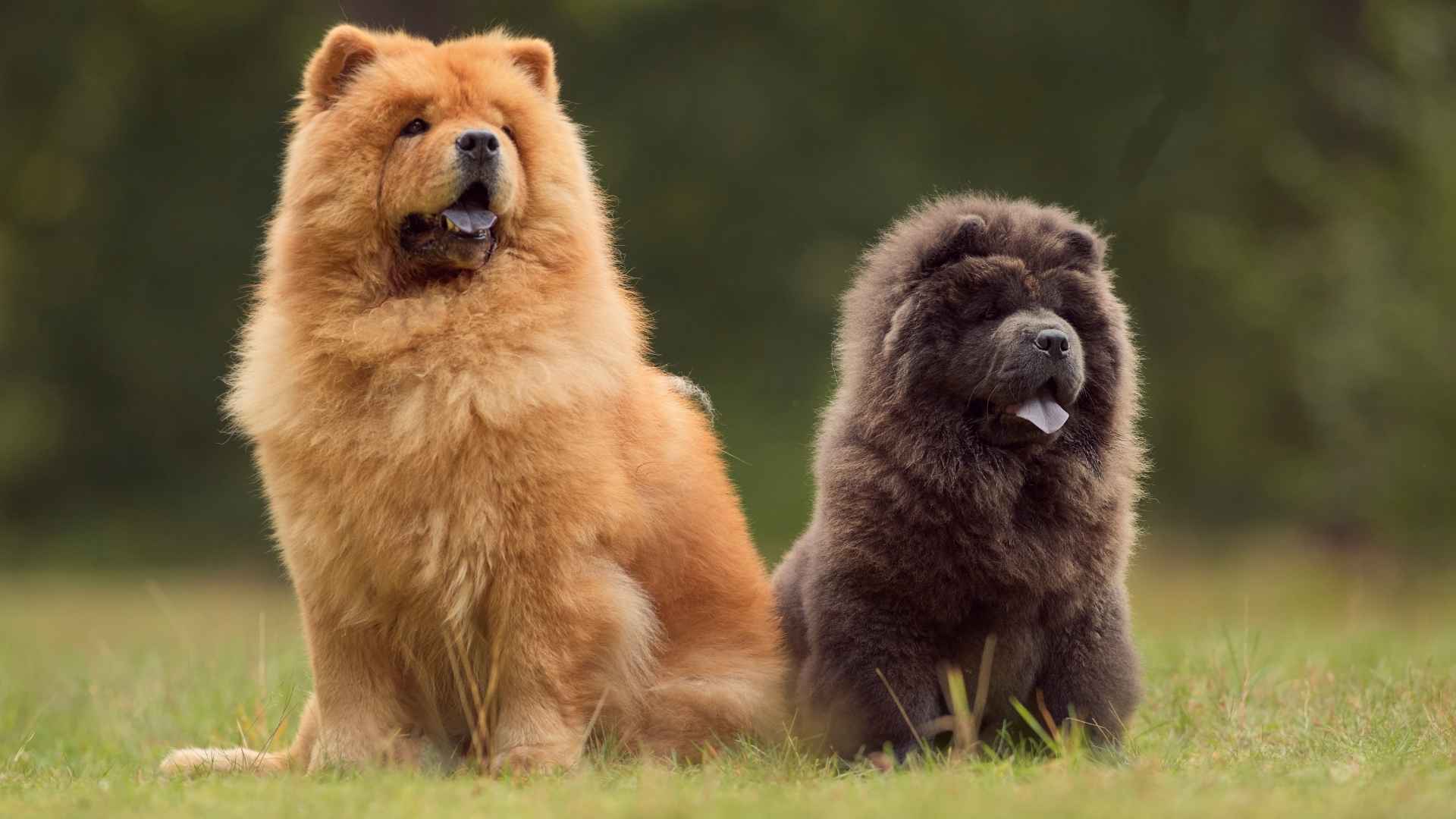Not every dog is a cuddle monster—and that’s totally okay. Some breeds prefer their personal space, and they’re perfectly content without being glued to your side 24/7. These pups are more independent by nature, and honestly, it’s kind of refreshing. Who says a dog has to be clingy to be loyal?
Ever feel like you need a pet that matches your “me time” energy? If you’re someone who values peace, quiet, and a little breathing room, these dogs might be exactly what you’re looking for. They’re calm, confident, and don’t need constant reassurance to know they’re loved.
That doesn’t mean they’re cold or unfriendly—they just show affection in their own subtle way. Think quiet companionship over dramatic displays. So, if you’ve been dreaming of a chill, low-maintenance buddy who respects boundaries, you’re in for a treat. Let’s check out the most independent, less affectionate breeds out there.
Independent and Less Affectionate Dog Breeds
1. Afghan Hound
Let’s be real—if dogs had social media, the Afghan Hound would post once a month, look flawless, and ignore all the comments. These dogs are legendary for their independence and that “don’t touch me unless I ask” attitude. Don’t expect sloppy kisses or tail-wagging excitement every time you walk in the room.
Afghan Hounds are all about personal space. They’ll curl up across the room, shoot you a glance, and go right back to their beauty sleep. It’s not that they don’t love you—they just value quiet time. Want a dog that’s cool being alone without giving you guilt-trips? This is your breed.
They come from the rugged mountains of Afghanistan, where they were bred to think and hunt solo. No handler shouting orders, no team effort—just one dog, one mission, and a whole lot of independence. That instinct is still alive and well in today’s Afghan Hounds.
Training these dogs isn’t a walk in the park. Sure, they’re intelligent—but they’re not eager to please, says WebMD. You’ll need patience, creativity, and a whole lot of treats. Positive reinforcement helps, but let’s be honest: if they don’t see the point, they’re not doing it.
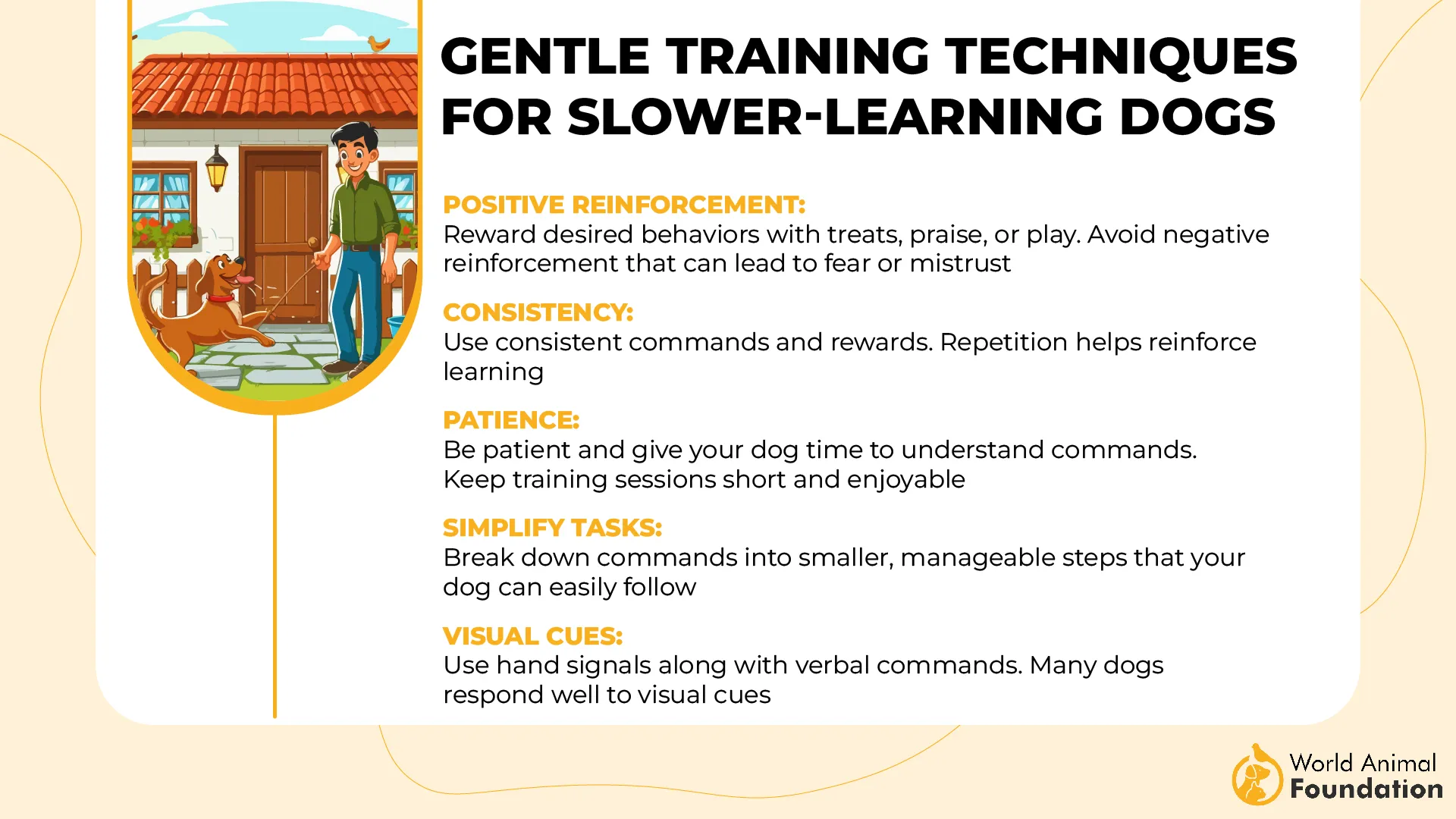
These pups won’t beg for affection or follow you around like a shadow. Instead, they’ll glance over with that classic, aloof look—as if to say, “You may sit near me, peasant.” They’ll come to you when they feel like it, which makes their affection feel like a rare and precious gift.
Quick Fun Fact: Afghan Hounds were one of the first dog breeds ever cloned—and the cloned pup made headlines! Talk about being iconic, even at a genetic level.
2. Chow Chow
Ever met a dog that acts more like a cat? That’s the Chow Chow in a nutshell. With their lion-like mane and cool-as-ice attitude, these dogs are fiercely independent and famously aloof. They’re not the type to come bounding into your arms—and honestly, they’d be offended if you expected that.
Chows are all about boundaries. They like their space, their routine, and their own quiet corner. They’re not unfriendly—they’re just selective. Affection? Only if they initiate it. Try forcing cuddles, and you’ll get the classic Chow side-eye of judgment.
This breed is the king of personal space. They’ll patrol the house with an air of royalty, inspecting everything but interacting on their terms. Don’t expect goofy antics or a tail-wagging welcome every time you walk through the door. They’re not cold—they’re just self-possessed.
Originally bred for guarding and hunting, Chows developed a sharp mind and a sharp eye. That background explains a lot about their aloof behavior—they’ve always been more protector than playmate. Purina states that their loyalty runs deep, but it’s not worn on their sleeve.
One unique thing about this breed? Their blue-black tongue. It’s a trademark trait and just adds to their mystique. It’s like they were designed to be different—from their teddy-bear looks to their reserved personality, they’re in a league of their own. They’re also naturally clean and quiet dogs. Most Chows are easy to house-train and don’t bark unless it’s really necessary.
3. Basset Hound
Basset Hounds may look like sleepy couch potatoes—and okay, they kinda are—but don’t let those droppy eyes fool you. Underneath that chill exterior is a stubborn, independent dog who marches to the beat of their own (very slow) drum. Affectionate? Eh, on their terms.
These dogs are perfectly content lounging in solitude for hours. They’re not big on clinginess, and while they might tolerate your snuggles, they’re not the type to beg for them. Want a dog that’s cool doing their own thing? The Basset fits the bill.
AKC states that their independence comes from their job as scent hounds. Originally bred to track prey over long distances, Bassets learned to work without relying on constant human direction. That “selective hearing” you’re noticing? Yep, that’s legacy behavior.
Here’s the twist—despite their lazy vibe, Bassets are insanely stubborn dogs. You ask them to do something? Expect a slow blink and a five-minute delay. They’re not ignoring you to be rude; they’re just deciding if it’s worth the effort.
Unlike high-energy breeds that constantly seek validation, Bassets are emotionally low-maintenance. They won’t pout if you leave the room or act hurt if you don’t pet them every hour. It’s kind of refreshing, honestly. They’re like your chill friend who always does their own thing.
4. Shiba Inu
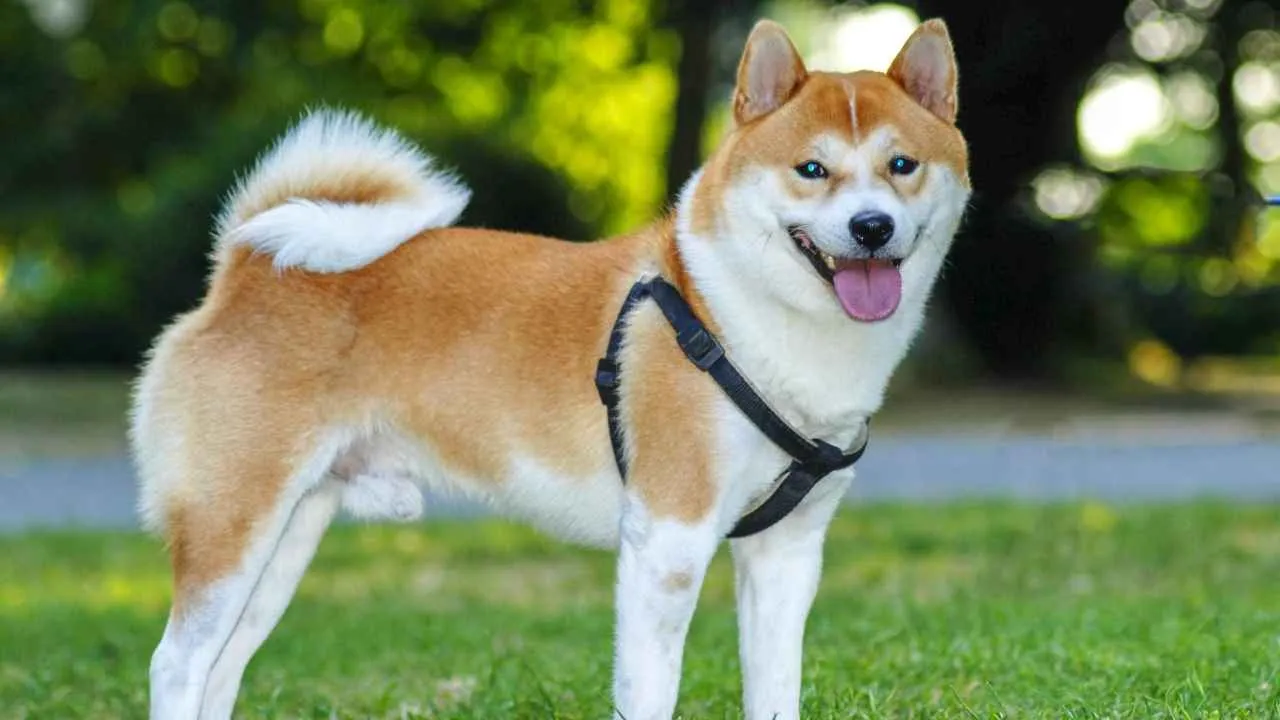
Ever tried bonding with a creature that looks at you like it’s doing you a favor? That’s the Shiba Inu experience. These foxy-looking pups are as independent as they come—and they’re not shy about it. They’re charming, clever, and totally uninterested in being your emotional support animal.
Shibas were bred to hunt alone in the mountainous regions of Japan, so relying on humans? Not in their DNA. They’re wired to think for themselves and solve problems solo. That self-reliance shows up big time in their behavior today.
They might love you, but they also really love their personal bubble. Don’t expect them to cuddle on demand. In fact, they’ll often move away the second you try. Sounds harsh? It’s just how they roll. They value respect over clinginess. Training one isn’t impossible, but it’s not for the faint of heart. Orvis states that Shibas are intelligent and smart—very smart—but obedient? That’s optional in their eyes. You’ll need patience, humor, and a solid strategy because bribes only go so far when they’re in a mood.
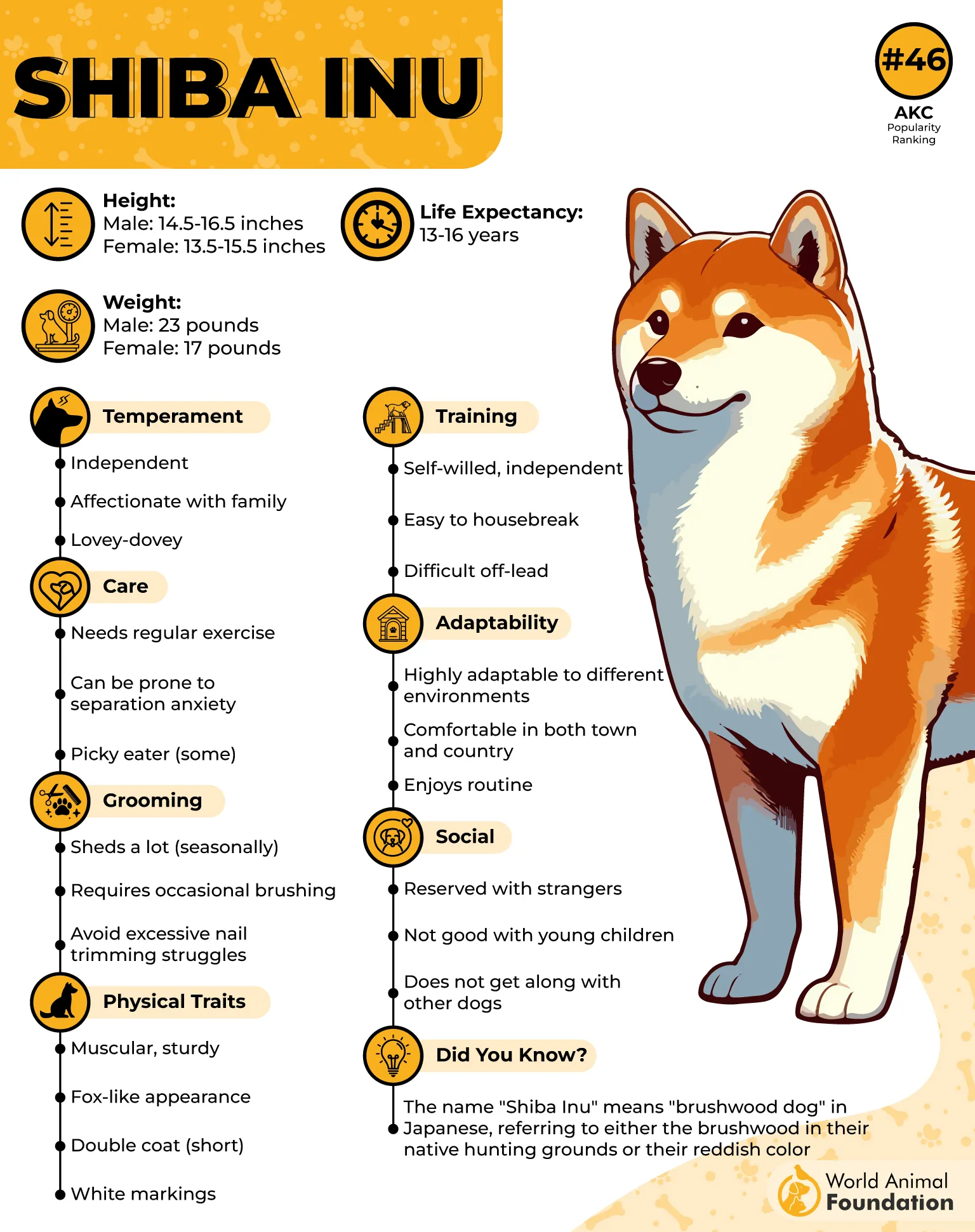
They’re also known for the “Shiba scream”—a dramatic, high-pitched shriek that erupts when they’re unhappy, scared, or just feeling extra spicy. It’s not aggression, it’s just… drama. Ever tried to trim a Shiba’s nails? You’ve probably heard it firsthand.
Socially, they’re selective. They may tolerate other dogs, but don’t count on instant friendships. Shibas are more lone wolves than pack players. They like observing before engaging—and even then, they might pass on the group activities altogether.
5. Basenji
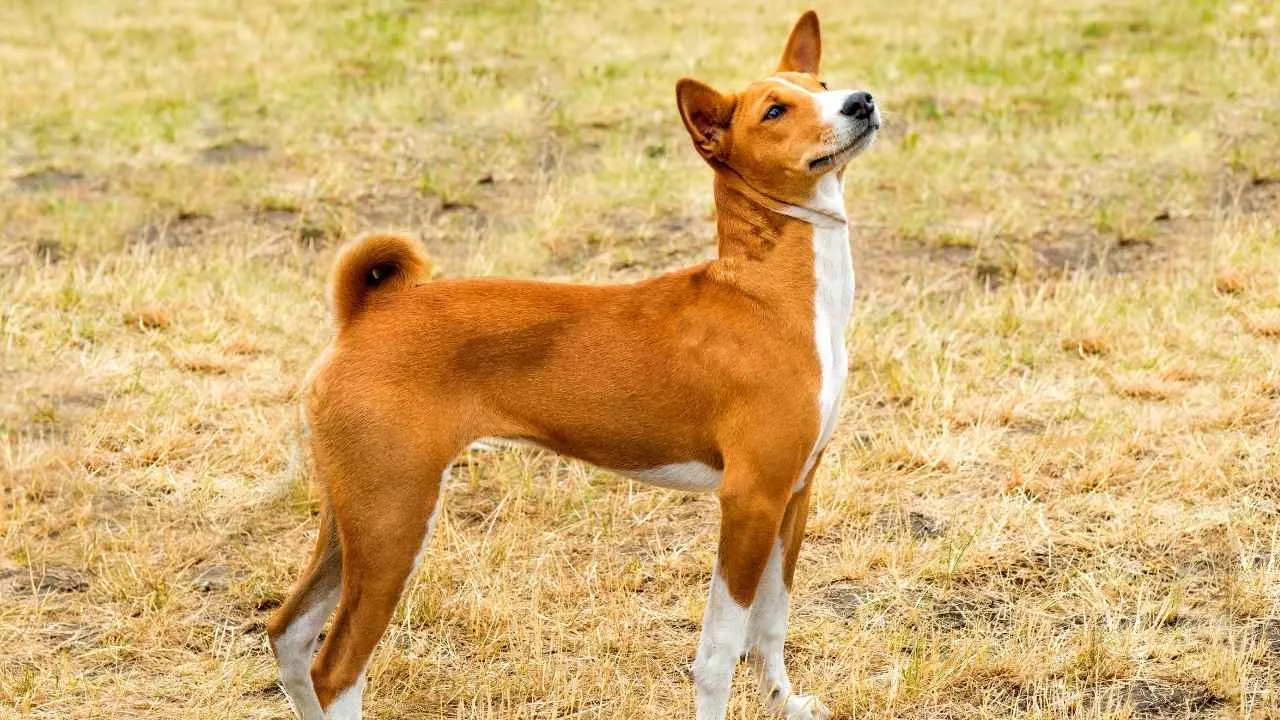
Looking for a dog that won’t slobber on your lap or beg for belly rubs 24/7? Meet the Basenji—a cool, compact dog with a personality more cat than canine. These small dynamos are sleek, clever, and unapologetically independent.
Originally bred in Central Africa to flush game and alert hunters, Basenjis developed without needing human micromanagement. That’s why they’re so self-sufficient today. They don’t wait for instructions—they make their own calls, sometimes with hilarious results.
One thing you’ll notice? They don’t bark. But silence doesn’t mean they’re shy. Instead of barking, Basenjis let out yodels, howls, or strange warbles when they feel like “talking.” It’s weird, unexpected, and completely Basenji.
Cuddles? Eh, maybe. Omlet says that they’re affectionate in short bursts, but don’t expect clinginess. A Basenji will follow you around the house just to see what you’re up to—but don’t expect a shadow. When they need space, they vanish like ninjas.
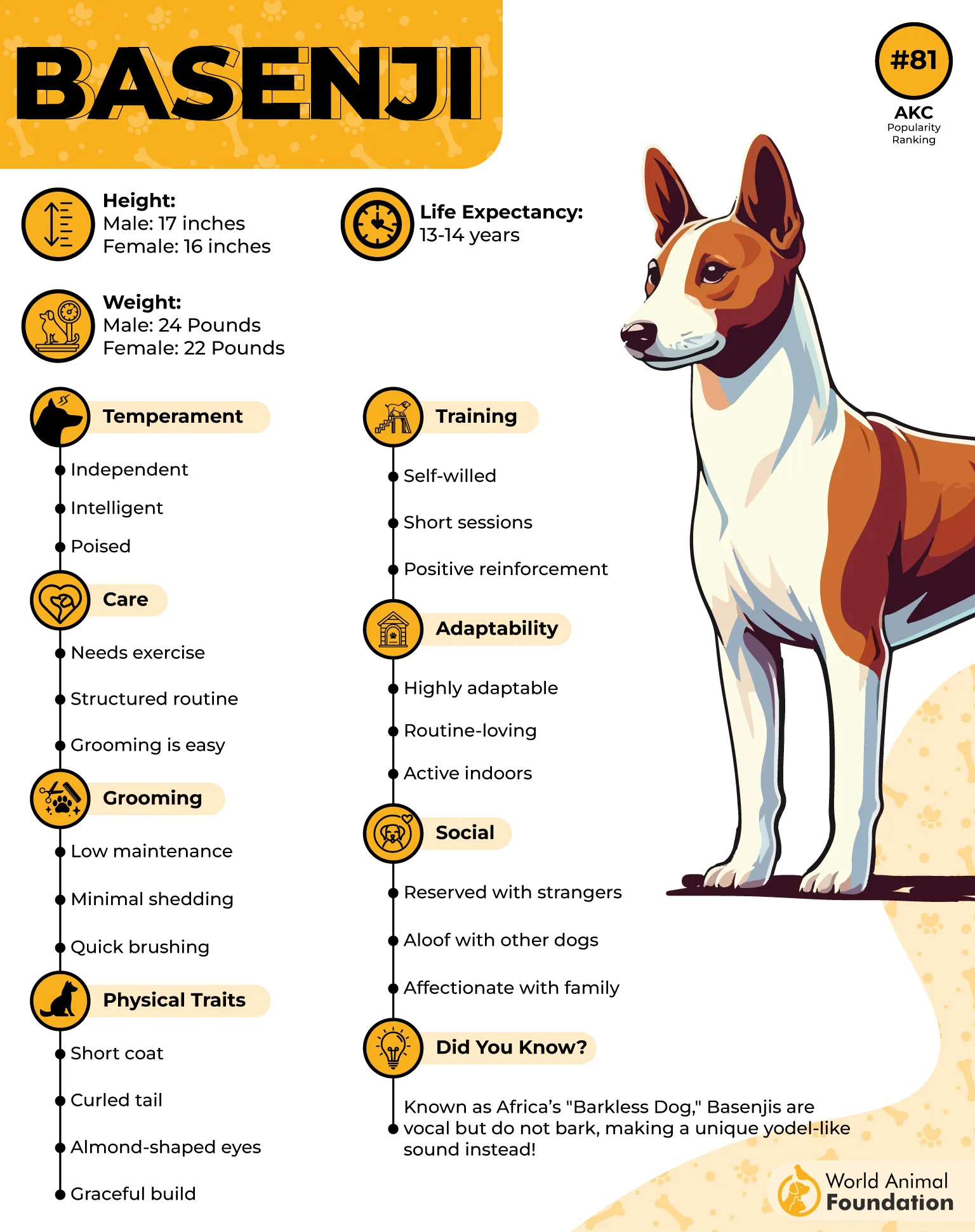
These dogs are seriously smart—like “figure out how to open the cabinet” smart. If you leave them alone too long, don’t be surprised if they invent a little chaos just to stay entertained. Got snacks? You might wanna hide them. They’re also known for being extremely clean. Basenjis groom themselves like cats, avoid muddy puddles like snobs, and often pick a single potty spot outdoors. Plus, they’re nearly odorless—no doggy smell here!
6. Scottish Terrier
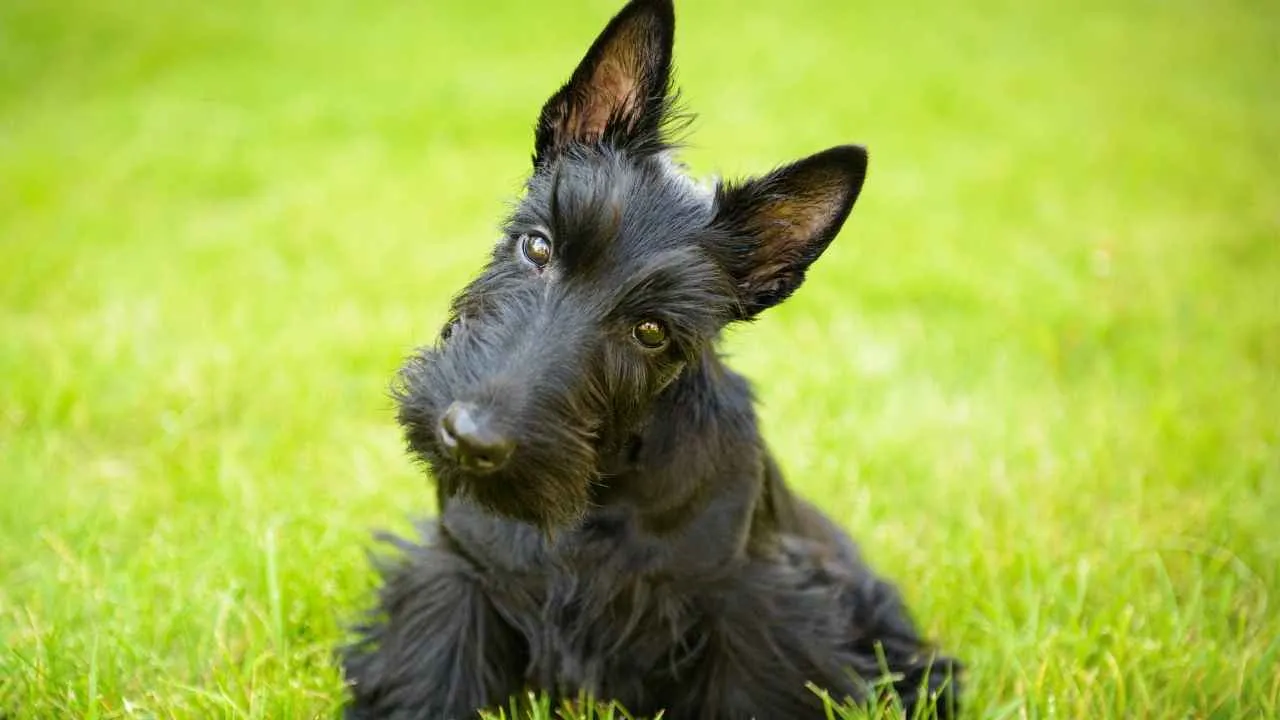
Originally bred in Scotland to hunt small game, these dogs have an independent streak a mile wide. They’ve never needed much help from humans and prefer to handle things on their own terms. When it comes to affection, they’re more on the “when I’m ready” side than the “always eager” one.
Training a Scottish Terrier? Good luck! They’re stubborn little dogs with a mind of their own. While they’re smart, they often act like they know better than you. Positive reinforcement can work, but you’ll need a good deal of patience.
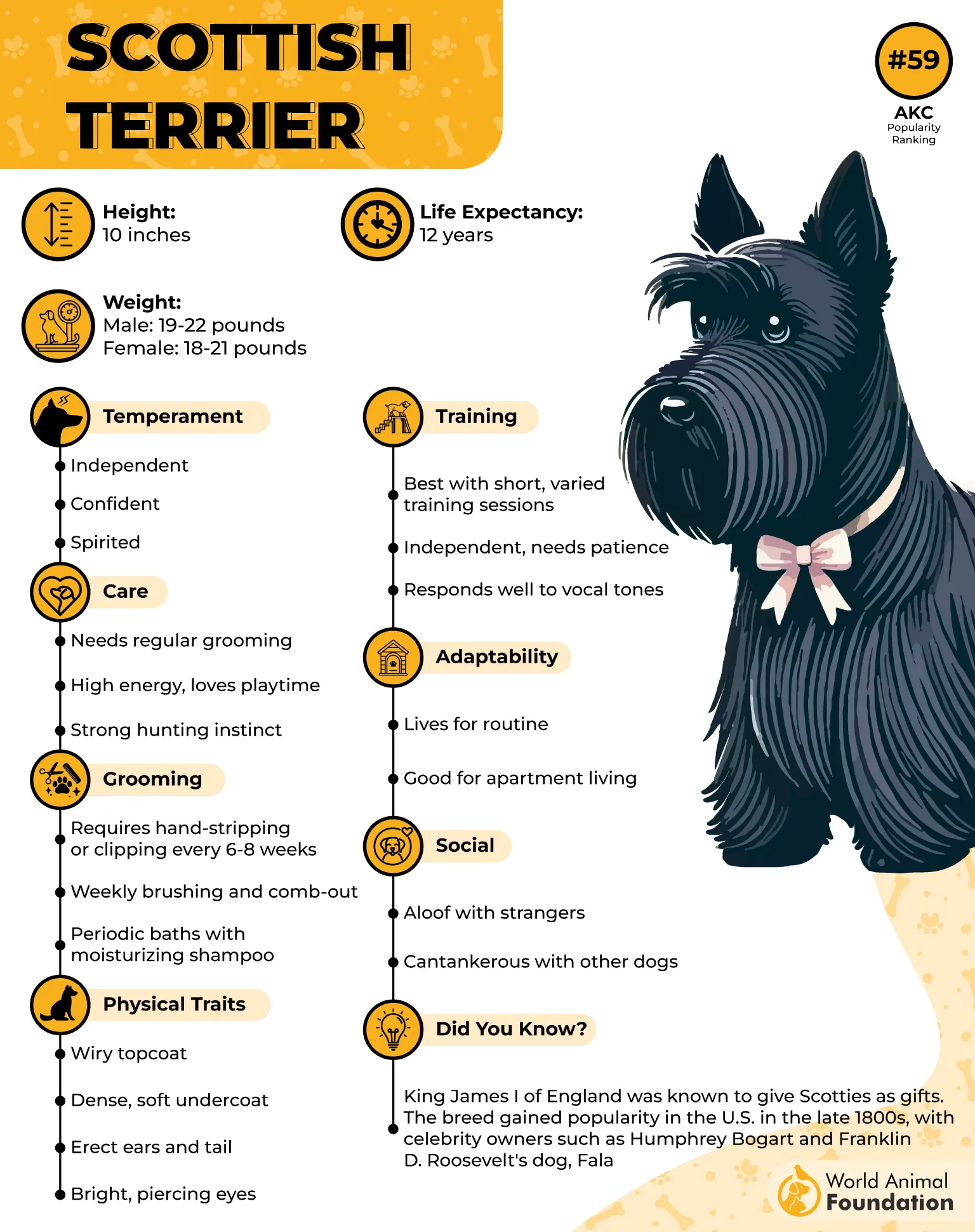
They’re not the most social dogs either. Scots tend to be reserved around strangers and can be quite territorial. They’d rather quietly observe newcomers than greet them with enthusiasm. Yet, once they trust you, they’re fiercely loyal and devoted, states CKC. Their independence extends to playtime, too. If you’re expecting a dog that’s constantly seeking attention, the Scottish Terrier will surprise you.
Despite their tough-guy demeanor, these dogs have a sensitive side. They may not show it in a typical affectionate way, but they bond deeply with their owners. They may not shower you with kisses, but they’ll follow you around and stay close when it matters most.
Scottish Terriers are clean dogs by nature, often grooming themselves like cats. They keep their coats looking neat and tidy without requiring much assistance. If you prefer a dog that’s low-maintenance and doesn’t shed excessively, this breed fits the bill. When it comes to barking, Scottish Terriers are generally quiet. They’ll let out a bark to alert you to danger, but they don’t bark incessantly.
7. Chinese Shar-Pei
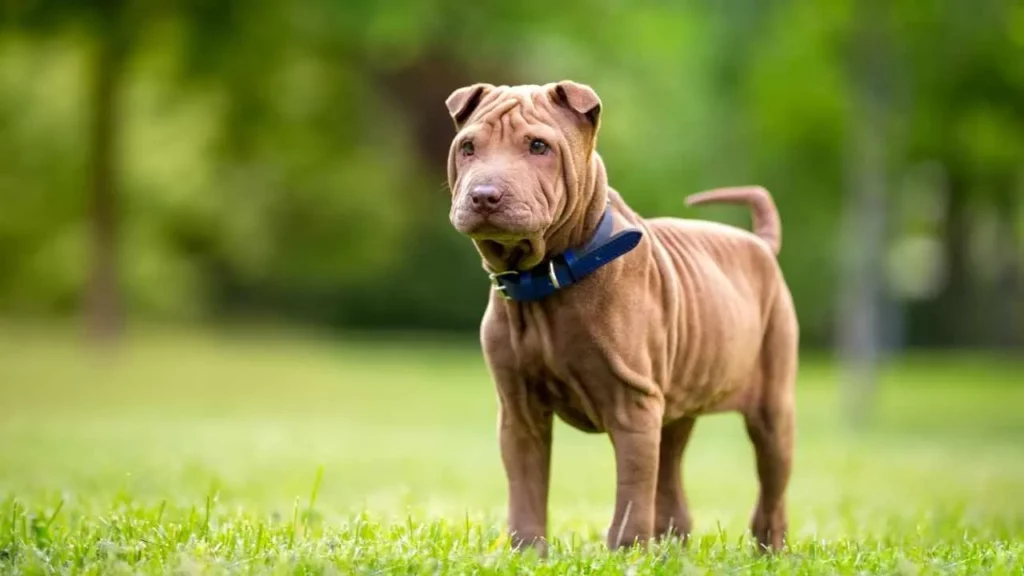
The Chinese Shar-Pei, with its wrinkled skin and distinct “hippopotamus” face, doesn’t exactly scream “lap dog.” They’re an independent breed that likes things on their terms, offering affection in small doses. Expect them to appreciate your company, but not demand it.
This breed was originally used for guarding and herding in China, which explains their self-reliance. They’re not needy dogs, and they don’t require constant attention or affection. Instead, they like to observe from a distance, letting you know when they’re ready for some quality time.
VCA states that Shar-Peis are calm, composed, and don’t mind spending time alone. While they’re not the type to follow you around the house, they’re not aloof either. They’ll happily chill in their own space, checking in on you every so often with a quiet, watchful gaze.
Their low-key nature doesn’t mean they’re shy. While they may not go out of their way to make new friends, Shar-Peis aren’t aggressive with strangers. They’ll observe new people carefully, and once they’re comfortable, they’ll be your quiet, devoted companion.
The breed also has a reputation for being quiet. They don’t bark unnecessarily and will only do so when they believe there’s a valid reason. It’s part of their calm, independent vibe—no need to announce every passing squirrel to the neighborhood. Shar-Peis are naturally clean dogs, thanks to their short coats and easy-to-maintain grooming needs. Their wrinkles do require regular cleaning to avoid skin infections, but overall, they’re low-maintenance when it comes to baths and brushing.
Quick Fun Fact:
The Shar-Pei’s unique wrinkles were originally bred to help protect the dog during fights—those folds acted as a shield, making it harder for opponents to grab them. Talk about natural armor!
Conclusion
When it comes to independent and less affectionate dog breeds, not all dogs are eager to snuggle in your lap. While many affectionate dog breeds crave constant attention from their human family members, breeds like the Shiba Inu, Afghan Hounds, Chow Chows, and the Barkless Dog (Basenji) stand out for their independent dog breed qualities. Originally bred for hunting, guarding, or working alongside humans rather than depending on them, these breeds thrive when given their own space. Proper socialization and early training are critical for these independent dogs, who can display a reserved nature and a reserved personality. Their aloof nature around new people and strangers doesn’t mean they lack loyalty; in fact, many like the Tibetan Mastiff and Great Pyrenees are deeply devoted and protective of their family members.
Breeds such as the Shar Pei with its distinctive blue black tongue, Alaskan Malamute, Borzoi, and Malamute exhibit a cat-like independence, preferring long periods without constant interaction. While not overly demanding, these dogs tend to thrive when allowed to enjoy their own devices. They require exercise, grooming, and early socialization to avoid behavior issues like aggression or shyness. Though these breeds are not traditionally cuddly or typical lap dogs, their unique personality, intelligent minds, and confident attitude make them a perfect match for the right pet parent. They are comfortable with hard work and have a natural instinct for guard dogs or sled dogs roles, reflecting their roots alongside wolves.
Choosing an independent dog with a reserved demeanor like a Basenji or a Shar Pei requires patience, commitment, and a strong sense of personal boundaries. These dogs still need companionship, training, and socializing, but they prefer a life without constant cuddles and attention. Affectionate breeds may offer endless snuggles, but for an owner who values independence, breeds with a strong independent streak make all the difference. Whether you seek a loyal friend who doesn’t need to snuggle 24/7 or a smart, self-assured companion, these independent and less affectionate dog breeds offer a unique charm that can be incredibly rewarding for the right owners.


